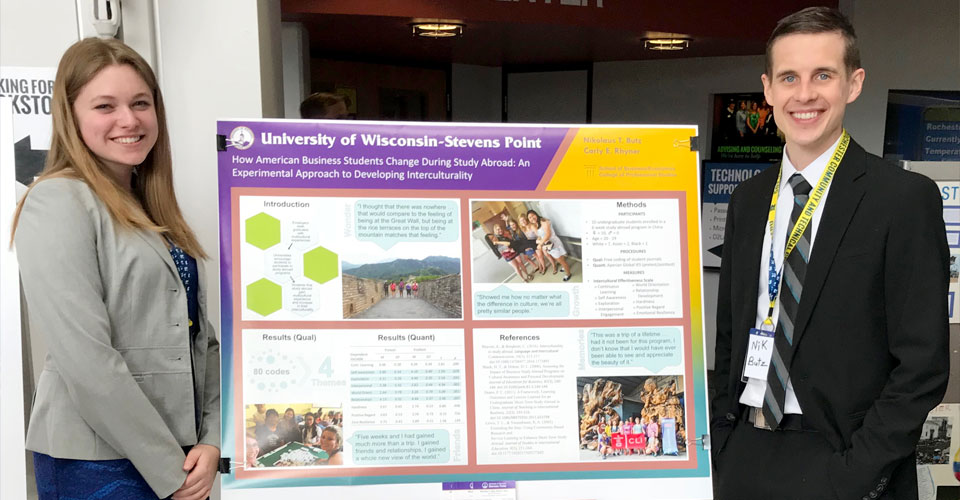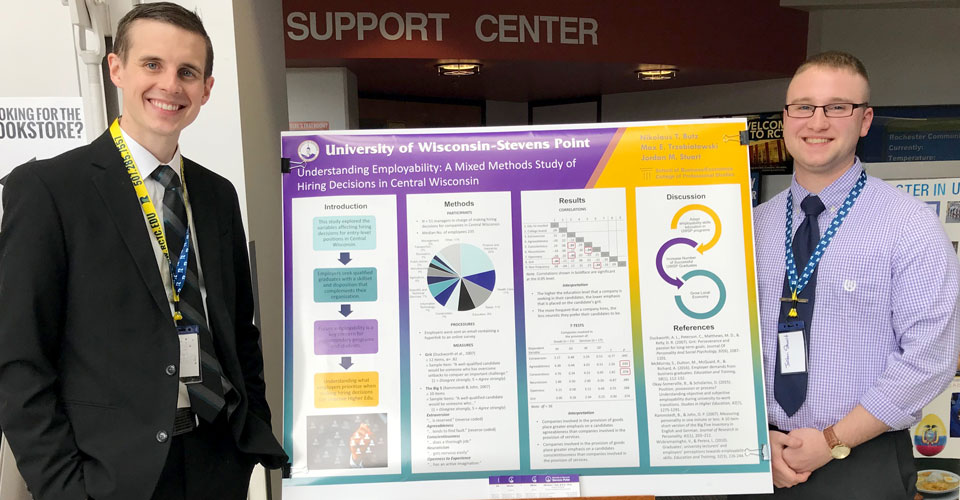
Two School of Business and Economics students from UW-Stevens Point presented at the Seventh Annual Minnesota Conference of Undergraduate Scholarly and Creative Activity in Rochester, Minnesota, on Friday, March 23. Carly Rhyner and Jordan Stuart shared their research on study abroad programs and employability, respectively, with Prof. Nik Butz serving as their adviser. Rhyner was awarded the best poster in her session.
Carly E. Rhyner (left)
How American Business Students Change During Study Abroad: An Experiential Approach to Developing Interculturality
More than ever before, employers are seeking graduates with an understanding of people from other linguistic, cultural, religious, and geographic backgrounds. Universities have responded by encouraging students to undertake study abroad programs; however, studying abroad is a highly personal experience with a wide range of outcomes. The purpose of this study was to examine how participation in study abroad enhanced the interculturality of undergraduate business students. This mixed methods study used pre-post surveys along with student journal entries to collect differing, yet complementary, data on intercultural learning outcomes. The findings suggested that program leaders can take certain actions to promote student appreciation of cultures that differ from their own. Overall, the results provided a more complete understanding of the relationship between participation in a study abroad program and students’ interculturality.

Jordan M. Stuart (right)
Understanding Employability: A Mixed Methods Study of Hiring Decisions in Central Wisconsin
Future employability is a key concern for postsecondary programs and the students enrolled in them. Likewise, employers seek qualified graduates with a skill set and disposition that complements their organization. To this end, gaining a better understanding of the factors that employers consider or prioritize when making hiring decisions is the first step in increasing the economic value of higher education. The purpose of this study was to explore the variables affecting hiring decisions for postsecondary entry-level positions in Central Wisconsin. This study used a convergent parallel mixed methods approached. Data were collected from regional employers using a mix of multi-item scales and open-ended survey questions.
